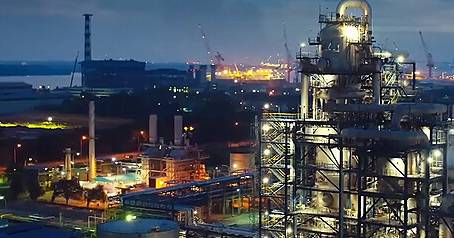Nov . 21, 2024 21:24 Back to list
pvc irrigation pipe
The Advantages of PVC Irrigation Pipes
Irrigation is an essential part of modern agriculture, playing a crucial role in ensuring optimal crop yields. Among the various components of irrigation systems, pipes are one of the most critical elements. PVC (Polyvinyl Chloride) irrigation pipes have become increasingly popular over the years due to their numerous advantages over traditional materials like metal or concrete. In this article, we will explore the benefits of using PVC irrigation pipes and why they are an excellent choice for farmers and agricultural professionals.
1. Durability and Longevity
One of the most significant advantages of PVC irrigation pipes is their durability. Unlike metal pipes, which can corrode over time, PVC pipes are resistant to rust and degradation from moisture and soil chemicals. This resistance ensures that PVC pipes can last for many years without needing replacement. In fact, when properly installed and maintained, PVC pipes can have a lifespan of 50 years or more, making them a cost-effective solution in the long run.
2. Lightweight and Easy to Install
PVC irrigation pipes are considerably lighter than their metal counterparts. This feature makes them easier to handle and transport, reducing labor costs during both installation and maintenance. The lightweight nature of PVC allows for simple and quick installation, which can significantly reduce the time and effort required for agricultural projects. Farmers can easily connect and disconnect pipes, which is particularly beneficial in seasonal irrigation setups.
The initial investment for PVC irrigation pipes is often lower than that of traditional materials. Given their longevity and reduced maintenance costs, PVC pipes become even more economically viable over time. Farmers can save on replacements, labor, and repair costs, allowing for better allocation of resources within their agricultural operations. This cost-effectiveness is appealing to both small-scale growers and large agricultural enterprises.
pvc irrigation pipe

4. Versatility and Flexibility
PVC irrigation pipes are highly versatile and can be used in various irrigation systems, including drip, sprinkler, and surface irrigation. Their flexible design allows for easy adaptation to different layouts and terrain types, making them suitable for a wide range of agricultural applications. Whether on steep hillsides or flat fields, PVC pipes can be configured to suit the needs of the specific farming operation.
5. Resistance to Chemicals
Agricultural fields often use various fertilizers and pesticides, which can be corrosive to traditional metal pipes. PVC pipes have a high resistance to chemical intrusion, meaning they can safely handle the chemicals commonly used in farming. This property ensures that the quality of water transported through these pipes remains uncontaminated, safeguarding crops and ultimately leading to a healthier harvest.
6. Environmental Considerations
Another notable benefit of PVC irrigation pipes is their environmental impact. PVC is a recyclable material, meaning that, at the end of its life cycle, it can be processed and reused. Moreover, due to their efficiency and durability, PVC pipes contribute to water conservation efforts by minimizing leaks and water wastage, which is increasingly important in our current climate where water scarcity is a global issue.
Conclusion
In conclusion, PVC irrigation pipes offer a multitude of advantages that make them an excellent choice for modern agricultural practices. Their durability, lightweight characteristics, cost-effectiveness, versatility, chemical resistance, and environmental benefits set them apart from traditional irrigation materials. As the demand for efficient and sustainable agricultural practices continues to rise, the use of PVC irrigation pipes represents a smart investment for farmers looking to optimize their irrigation systems and enhance crop production.
-
High-Quality PPR Pipes and Fittings Durable ERA PPR & PVC PPR Solutions
NewsJul.08,2025
-
Black HDPE Cutting Board - Durable, Non-Porous & Food Safe HDPE Plastic Cutting Board
NewsJul.08,2025
-
High-Quality CPVC Panel Durable HDPE & PVC Panels Supplier
NewsJul.08,2025
-
Double PE Welding Rod Supplier - High Strength, Durable & Versatile Welding Solutions
NewsJul.07,2025
-
High-Quality PVC-O Pipe Supplier Durable 75mm PVC Pipe & Connections Leading PVC Pipe Company
NewsJul.07,2025
-
HDPE Drainage Pipe Supplier – Durable & Corrosion-Resistant Solutions
NewsJul.06,2025

